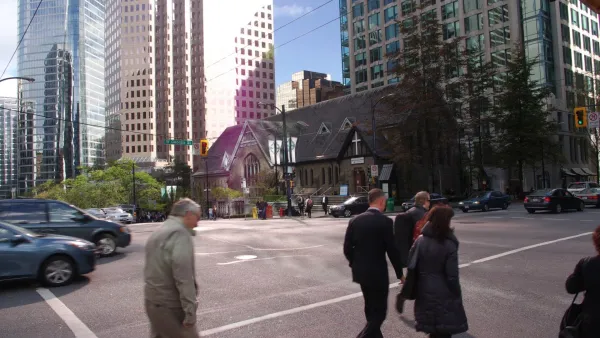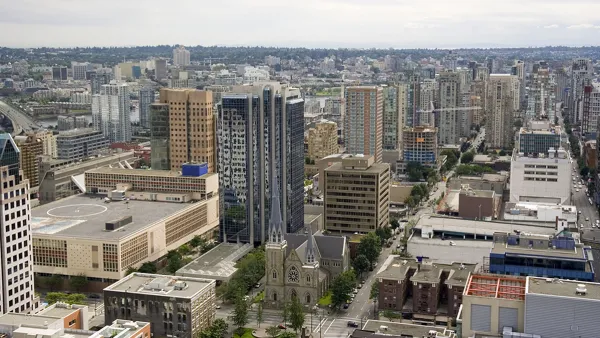UBC's Patrick Condon argues that for Vancouver and cities like it, simply adding supply at any level doesn't get at the root causes of the global affordable housing crisis.

The Planning Report interviews Patrick Condon, chair of Urban Design at the University of British Columbia, about the factors that led Vancouver to launch its recent housing policy "reset"—a shift away from encouraging all types of housing to investing in the preservation of affordable housing. At first, Condon says, the city facilitated plenty of development "based on the assumption that any supply is good supply" because even high-end housing would improve affordability. But over time:
It became increasingly obvious that adding supply in this way was not reducing, but actually increasing, the cost of housing. Adding supply at the high end had the nefarious consequence of increasing the apparent investment value of real estate throughout the entire city. It not only created supply that was unaffordable to the people who live here, but also had the perverse effect of raising the cost of all housing throughout the city.
Now, the city is pursuing a set of strategies whose goal is to devalue land—"because in reality, we don’t have a high-cost housing problem. We have a high-cost buildable land problem," Condon says. The new 10-year plan also encourages transit-oriented development, streamlines development permits, and preserves existing affordable housing, while targeting investment in new supply to housing for average incomes.
For Condon, these are first steps that can help alleviate the stress caused by a deeper, more pervasive problem: a global real estate environment that has rendered housing a commodity. "The fundamental problem is that there is a flow of money away from the middle class toward the investor class, and that is not a problem that purely housing-oriented strategies are going to solve," he says.
Condon is the first to note that his research has met a cooler reception in Vancouver than in neighboring cities. Planetizen blogger Michael Llewyn has offered contrasting perspectives on the roots of Vancouver's housing problem and possible solutions.
FULL STORY: Learning from Vancouver: Housing Affordability & the Myth of Supply-Side Densification

Analysis: Cybertruck Fatality Rate Far Exceeds That of Ford Pinto
The Tesla Cybertruck was recalled seven times last year.

National Parks Layoffs Will Cause Communities to Lose Billions
Thousands of essential park workers were laid off this week, just before the busy spring break season.

Retro-silient?: America’s First “Eco-burb,” The Woodlands Turns 50
A master-planned community north of Houston offers lessons on green infrastructure and resilient design, but falls short of its founder’s lofty affordability and walkability goals.

Test News Post 1
This is a summary

Analysis: Cybertruck Fatality Rate Far Exceeds That of Ford Pinto
The Tesla Cybertruck was recalled seven times last year.

Test News Headline 46
Test for the image on the front page.
Urban Design for Planners 1: Software Tools
This six-course series explores essential urban design concepts using open source software and equips planners with the tools they need to participate fully in the urban design process.
Planning for Universal Design
Learn the tools for implementing Universal Design in planning regulations.
EMC Planning Group, Inc.
Planetizen
Planetizen
Mpact (formerly Rail~Volution)
Great Falls Development Authority, Inc.
HUDs Office of Policy Development and Research
NYU Wagner Graduate School of Public Service




























